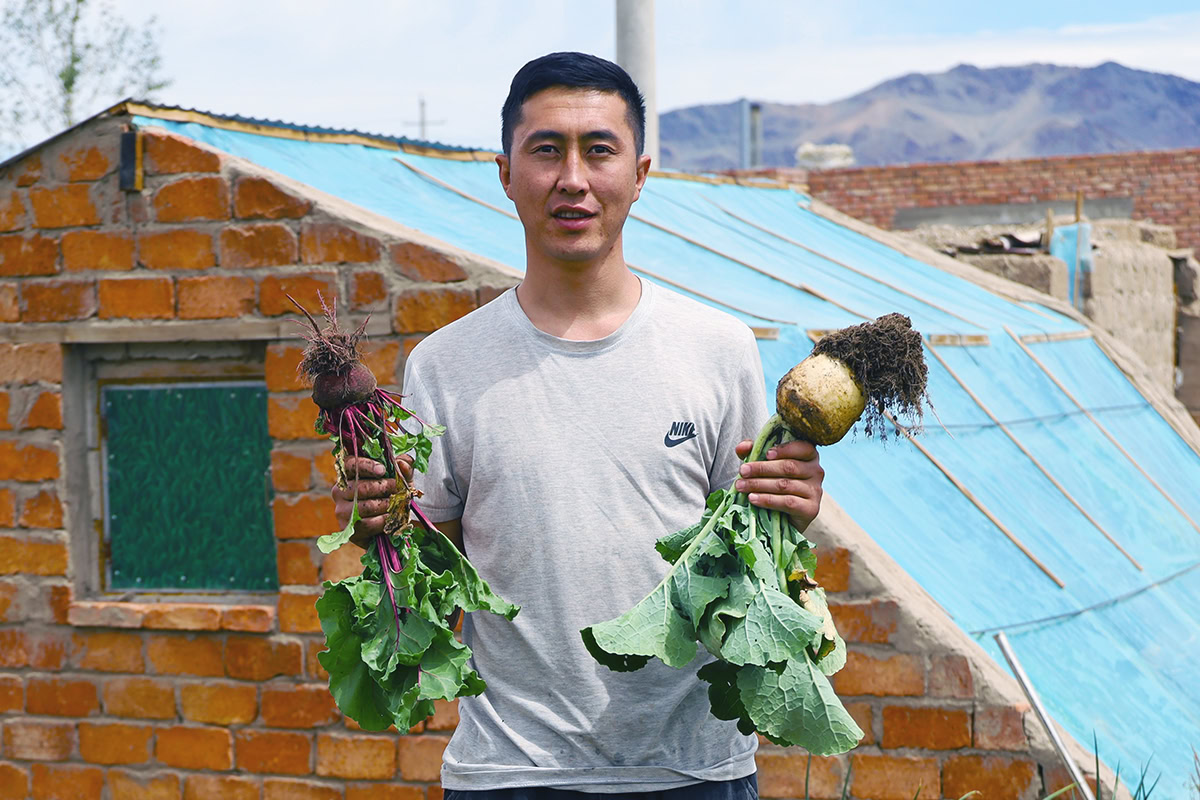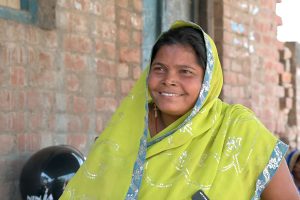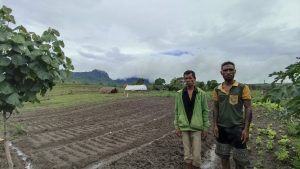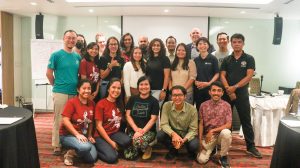In the mountainous province of Bayan-Ulgii in western Mongolia, winter often feels more like a year-round season than a passing chapter. Life here is shaped by long, harsh winters and fleeting, unpredictable summers. The soil is cold, the winds are sharp, and for many, the idea of growing vegetables seems nearly impossible. But for Bagdaulet Kh., a 28-year-old resident of Ulgii, 2024 marked the beginning of something unexpected—a new season in every sense of the word.
Before this year, Bagdaulet had never imagined himself as a farmer. Like most young men in his community, he grew up surrounded by a culture built on animal herding, preserved foods, and meat-heavy meals. Agriculture—especially vegetable farming—was seen as something reserved for warmer provinces or wealthier regions. It simply wasn’t part of life in Ulgii, where frost can linger into June and snow arrives before October.
But change came to Bagdaulet through someone familiar—his father-in-law, who had recently joined a project supported by ADRA Mongolia. Known as the Climate Adapted Nutrition Sensitive Agriculture Project (CANSAP), this initiative aims to introduce sustainable, climate-resilient farming methods across Mongolia, particularly in regions most affected by climate challenges. Intrigued by his father-in-law’s excitement, Bagdaulet agreed to visit ADRA’s local office.
That visit marked the start of his new season.
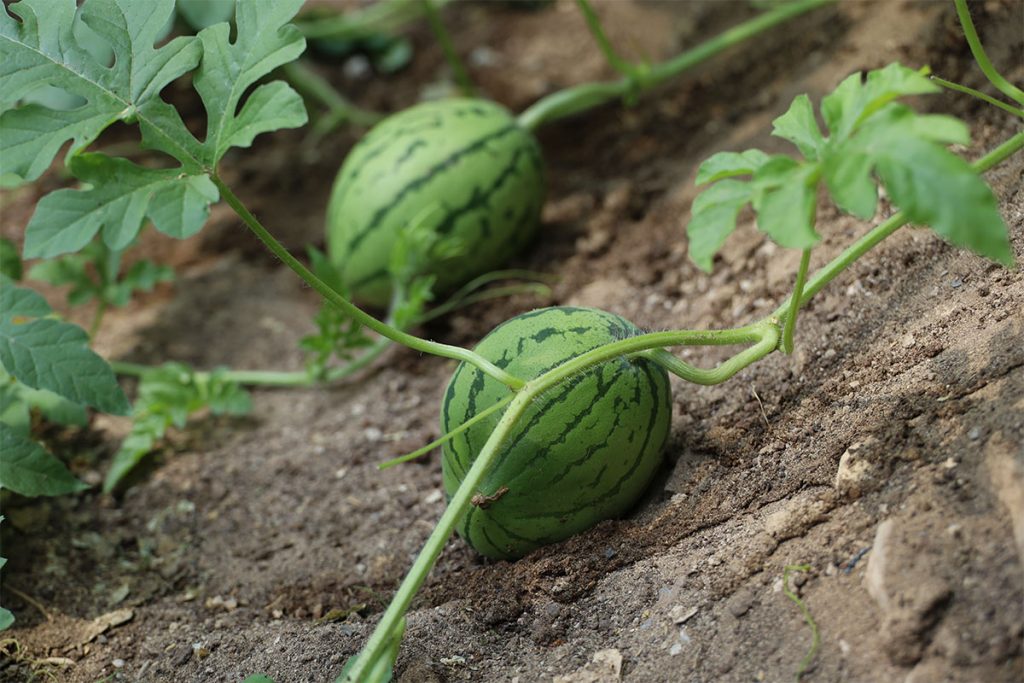
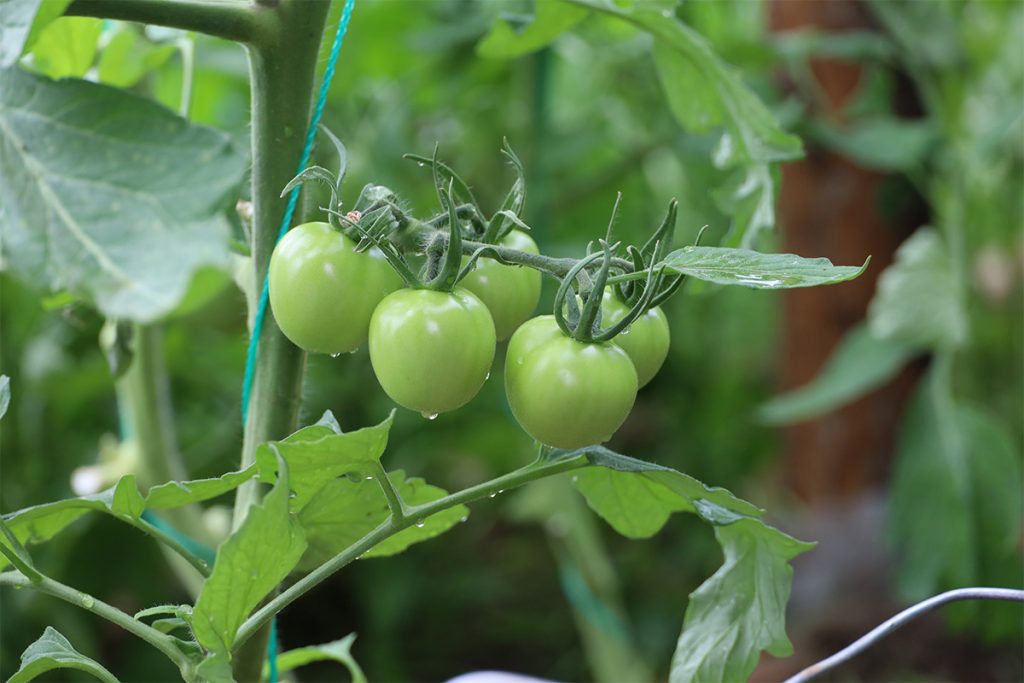
At the project office, Bagdaulet learned about Passive Solar Greenhouse (PSGH) technology—a climate-smart solution designed to retain solar heat and extend the growing season, even in frigid environments. ADRA’s team provided clear, easy-to-follow training on how to build and maintain a PSGH, alongside support materials, local mentoring, and nutrition education. For someone with no agricultural background, it was the kind of practical, hands-on help that made farming feel accessible.
Encouraged by what he saw and learned, Bagdaulet returned home and began construction on his very first Passive Solar Greenhouse. He didn’t know what to expect. But as he planted his first seeds—lettuce and cucumbers—he also planted something deeper: the possibility of a new season not just for his land, but for his life.
By mid-June, the results were clear. While others were still waiting for their first harvest, Bagdaulet was already supplying fresh vegetables to local restaurants. His lettuce was crisp, his cucumbers plentiful, and his confidence blooming. In just one season, he had doubled his income compared to the previous year, simply by growing something that had once felt impossible.
But the transformation didn’t end in the greenhouse. As part of the CANSAP project, Bagdaulet’s wife joined ADRA’s nutrition training sessions, where she learned how to prepare meals with more variety, nutrition, and freshness. Together, they introduced a new rhythm into their home—one where vegetables played a central role at the family table. Gone were the days of monotony. In their place were colorful salads, fresh soups, and meals that nourished both body and spirit.
“Before, I never imagined growing vegetables in my yard—it seemed impossible,” Bagdaulet shared. “Now, my perspective has completely changed. I’m amazed by what I’ve achieved.”
With his new season in full swing, Bagdaulet is already planning ahead. He hopes to continue harvesting through November, extending his production longer than most traditional growers in the region. Even more importantly, he’s now acting as an advocate for the project, encouraging other young people to participate. He invites neighbors and friends to visit his greenhouse, shows them what’s possible, and explains how the PSGH works.
What began as one man’s quiet experiment is now sparking community transformation—a chain of change that started with a father-in-law, passed to a son-in-law, and is now spreading across generations.
This ripple effect is precisely what the CANSAP project was designed to inspire. Implemented by ADRA Mongolia, with support from ADRA Japan and ADRA Deutschland e.V., the project aims to combat the twin challenges of climate change and malnutrition through integrated, sustainable agriculture. It introduces modern yet locally adaptable technologies, like the PSGH, while offering hands-on training and empowering families to take control of their nutrition and income.
By promoting nutrition-sensitive agriculture, CANSAP not only increases the availability of fresh produce—it improves household food diversity and health outcomes, especially for children. The project also creates economic opportunities in remote, under-resourced communities, turning unused land into productive gardens and young skeptics into proud farmers.
In a place where the climate often dictates limits, this project—and stories like Bagdaulet’s—are proving that new beginnings are still possible. More than just a greenhouse or a harvest, what Bagdaulet has discovered is a new season of purpose, of contribution, and of hope.
He is no longer just witnessing change—he is shaping it.
His journey reminds us that resilience isn’t born in ideal conditions. It emerges in harsh soil, under uncertain skies, in the hands of someone willing to try. It grows in the cracks of assumptions and flourishes with a little sunlight, structure, and support.
And just like that, a region known for its cold soil and short seasons is now growing something else entirely—a new story. One where young people lead, families thrive, and entire communities begin to reimagine what’s possible. This is Bagdaulet’s new season.
ADRA is the quiet presence in hard places, the steady hands in uncertain seasons, and the voice that says—“Yes, you can.” Together with partners and people like Bagdaulet, we are building a future where change grows from the ground up.

